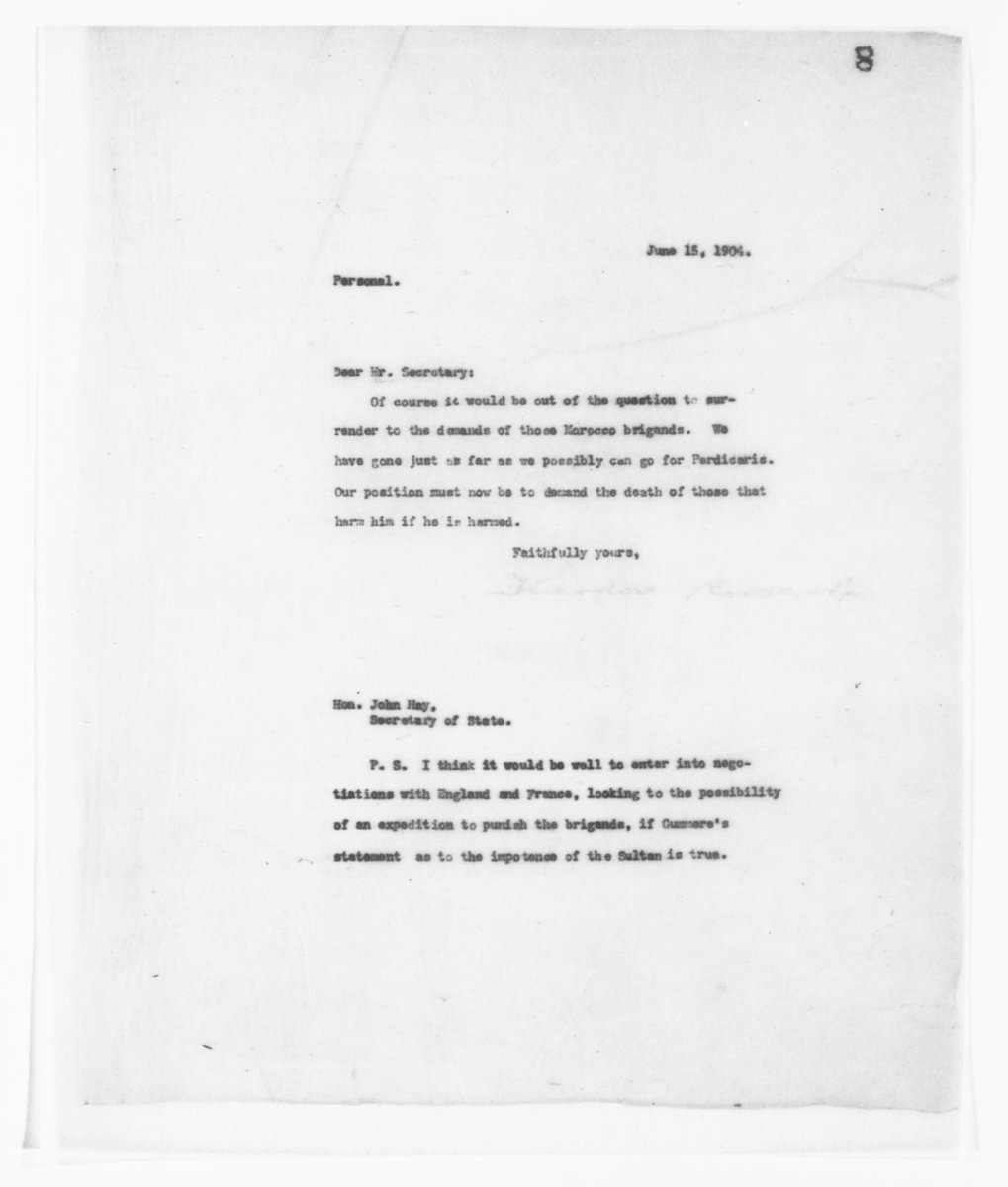TR Encyclopedia – Foreign Affairs
The Perdicaris Incident
Ion Perdicaris was the son of wealthy Greek immigrant, Gregory Perdicaris. The family’s fortune came from the Trenton Gas Company in New Jersey. As an adult, Ion Perdicaris moved to Morocco and with his wife Ellen Varley Perdicaris, became the center of the American expatriate community in Tangier. Because of his wealth, Perdicaris, and his stepson Cromwell Varley, were kidnapped in 1904 by a powerful Berber chieftain named Aḥmad Raysūnī (or Raisuli, to most English speakers). Raysūnī made a number of political and financial ransom demands of the sultan of Morocco, Mulay Abd al-Aziz IV.
President Theodore Roosevelt, his Secretary of State John Hay, and the U.S. Consul-General of Morocco, Samuel R. Gummeré, wanted both to rescue Perdicaris and Varley and to remain aloof from the ongoing negotiations by European colonial powers concerning the future of Morocco. When the sultan did not move quickly enough, Roosevelt felt he had to act. Gummeré, who was a friend of Perdicaris, suggested military engagement. Roosevelt determined instead to lean on the sultan by ordering part of the United States Fleet to Tangier. As negotiations dragged on, Roosevelt’s impatience pushed him to contemplate a joint military expedition with Britain and France, or the issuing of an ultimatum threatening the landing of American Marines. He also directed Hay to pressure Abd al-Aziz, leading to the famous telegram reading, “We want Perdicaris alive or Raisuli Dead.”
While the situation was complicated as questions began to arise about whether Perdicaris was indeed a citizen of the United States – after investigation it appeared that Perdicaris had relinquished his American citizenship years earlier in favor of Greek citizenship – Roosevelt knew that Raysūnī believed he had kidnapped an American, and thus a larger principle was at stake.
U.S. military might proved unnecessary in the end, as the sultan and Raysūnī came to terms and Perdicaris regained his freedom. Nevertheless, the Perdicaris Incident remains well-known for the wording of Hay’s telegram, and remains a clear example of Roosevelt’s “big stick” diplomacy.
